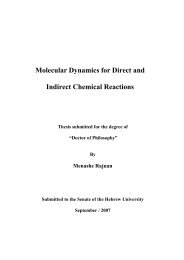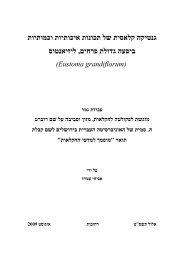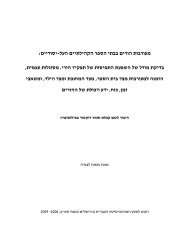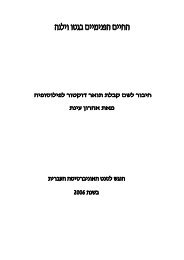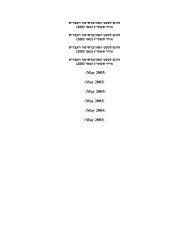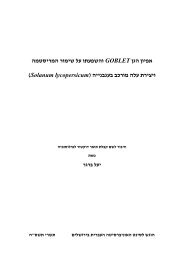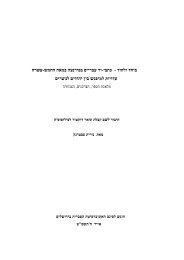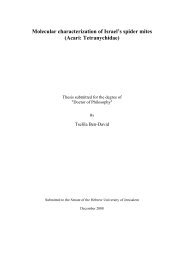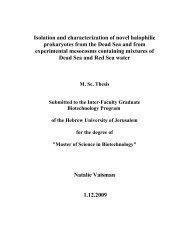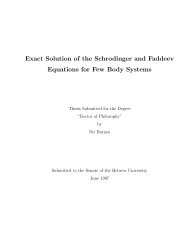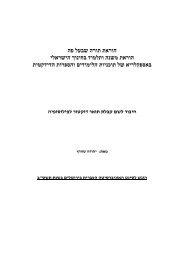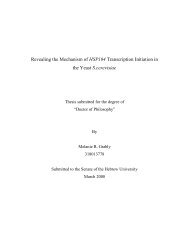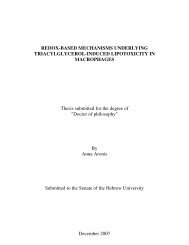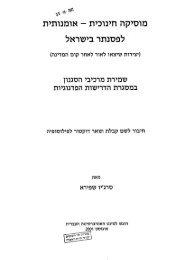××ר×ת ס×פ×ר ×× ×¡ ××קר×× ×××× ×× ××××××ª× ××שר×× - ×××× ××רס××× ××¢×ר×ת ...
××ר×ת ס×פ×ר ×× ×¡ ××קר×× ×××× ×× ××××××ª× ××שר×× - ×××× ××רס××× ××¢×ר×ת ...
××ר×ת ס×פ×ר ×× ×¡ ××קר×× ×××× ×× ××××××ª× ××שר×× - ×××× ××רס××× ××¢×ר×ת ...
You also want an ePaper? Increase the reach of your titles
YUMPU automatically turns print PDFs into web optimized ePapers that Google loves.
iblical miracle stories may be confusing and their purpose unclear (see below). The<br />
representative of the teachers notes that most of the teachers read and teach biblical<br />
miracle stories literally, in a manner similar to the way in which they were taught as<br />
children. Much research has shown that teachers do not by and large reflect upon the<br />
ramifications of this kind of teaching style; they are not cognizant of the needs of the<br />
students for whom a literal reading is presently inappropriate, nor do they take into<br />
account the future needs of the students when they leave the religious environment<br />
and move into the secular world of the army and university. On the other hand, other<br />
research has demonstrated that teachers of culturally valued texts care very much<br />
about how their students react to subject matter, and want them to feel some kind of<br />
identification with it. The representative of the milieu highlights the clash between the<br />
literal reading of biblical miracle stories, and the milieus that influence the<br />
perceptions and outlooks of many students: secular families, the mass media, popular<br />
culture, and the internet. The message that is transmitted by these milieus is often one<br />
of demystification and secularization, where mystery, sanctity, and innocence are<br />
lost. In such an environment, it is difficult to create an aura of wonder, which is a sine<br />
qua non for the appreciation of miracle.<br />
One might have thought that the believing student can withstand the impact that<br />
the various milieus bear upon him. However, a deeper look at the student`s position<br />
reveals that he too may have trouble finding meaning in biblical miracle stories. He<br />
may be troubled by inner contradictions in the story itself (first-order problems), such<br />
as the virtual identity between some miracles and magic; he will most likely be<br />
disturbed by second-order problems, or by a combination of the two, such as: why are<br />
there no miracles today? Can miracles really foster faith, when they themselves are<br />
ephemeral? Why are the miracles of the Jewish tradition more valid than those of<br />
313



